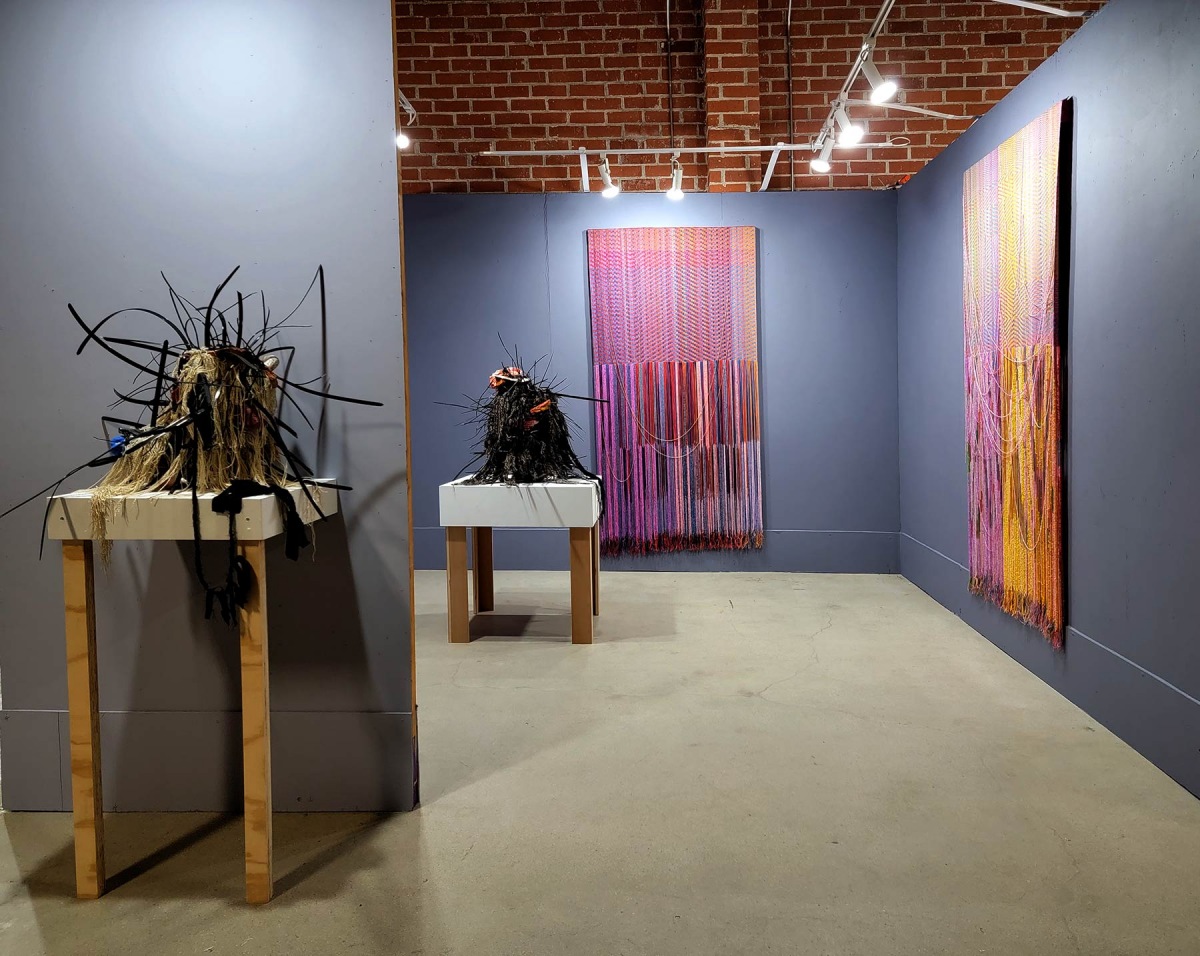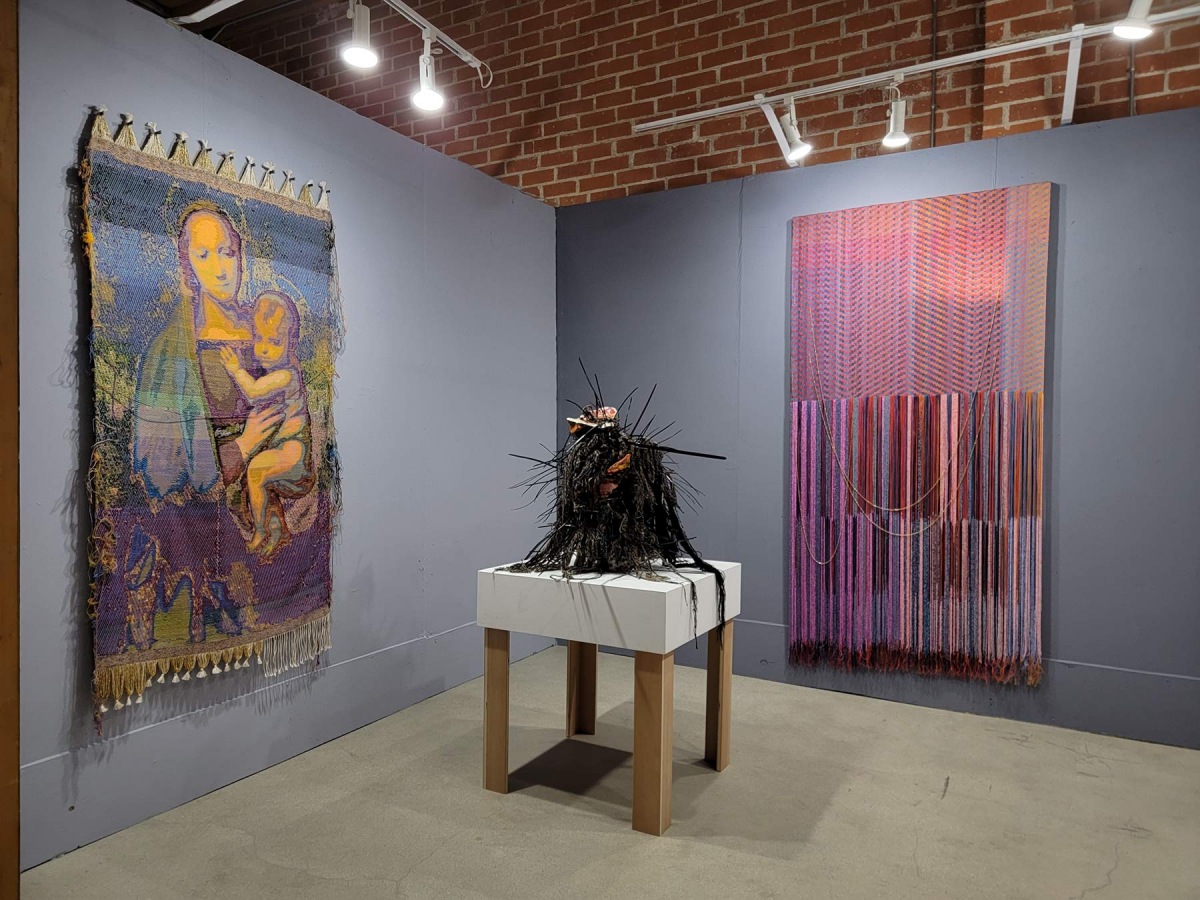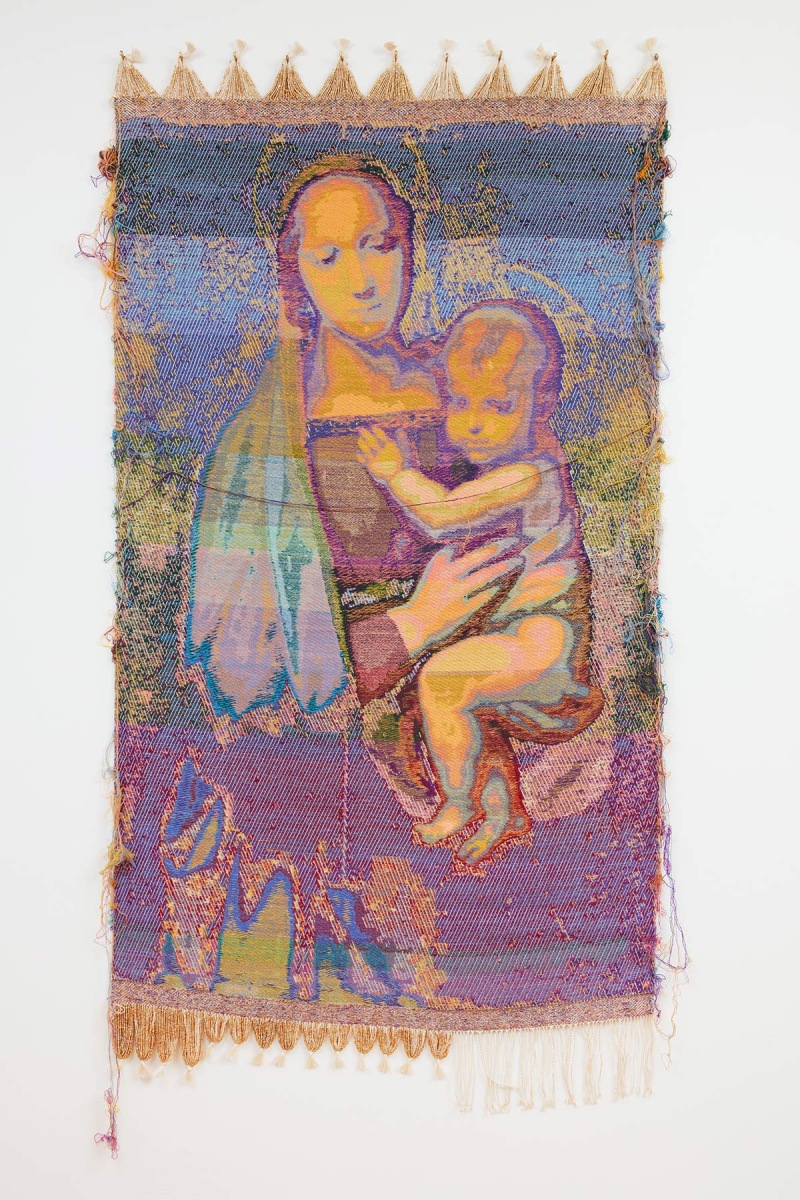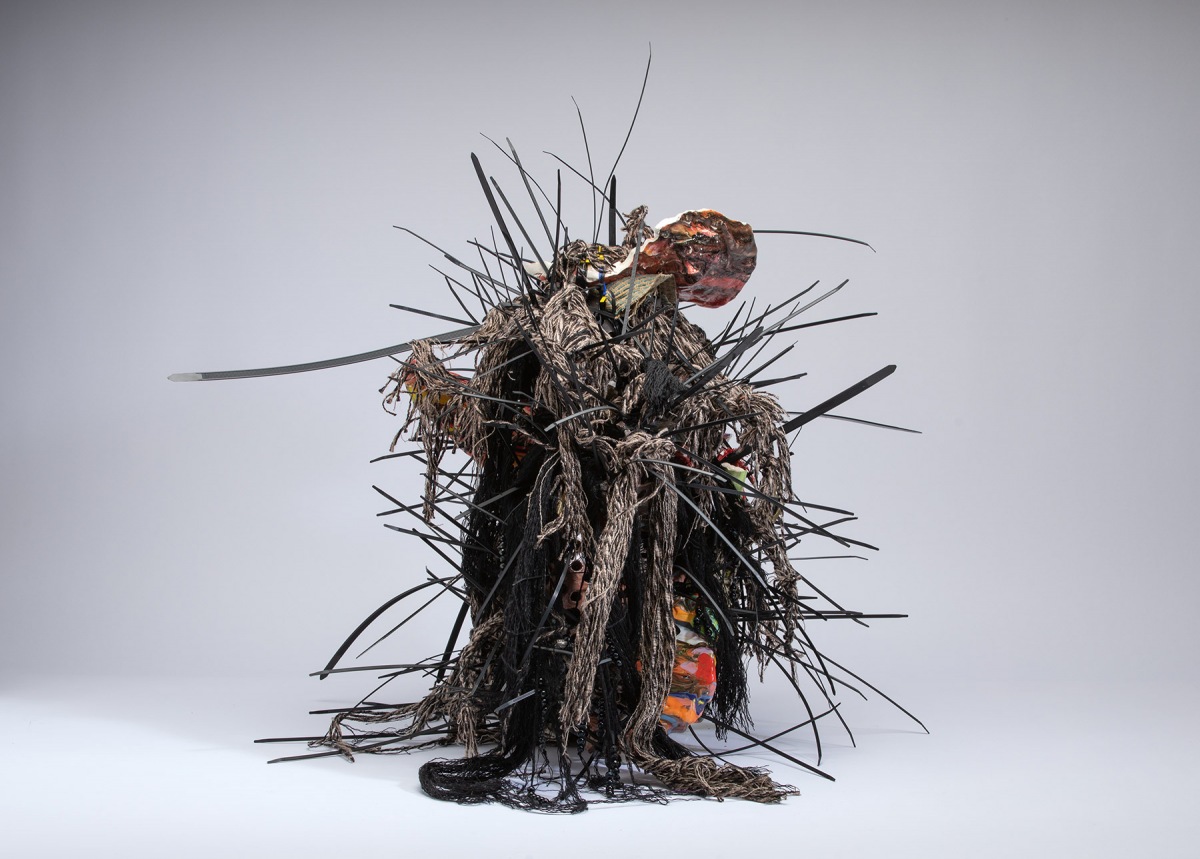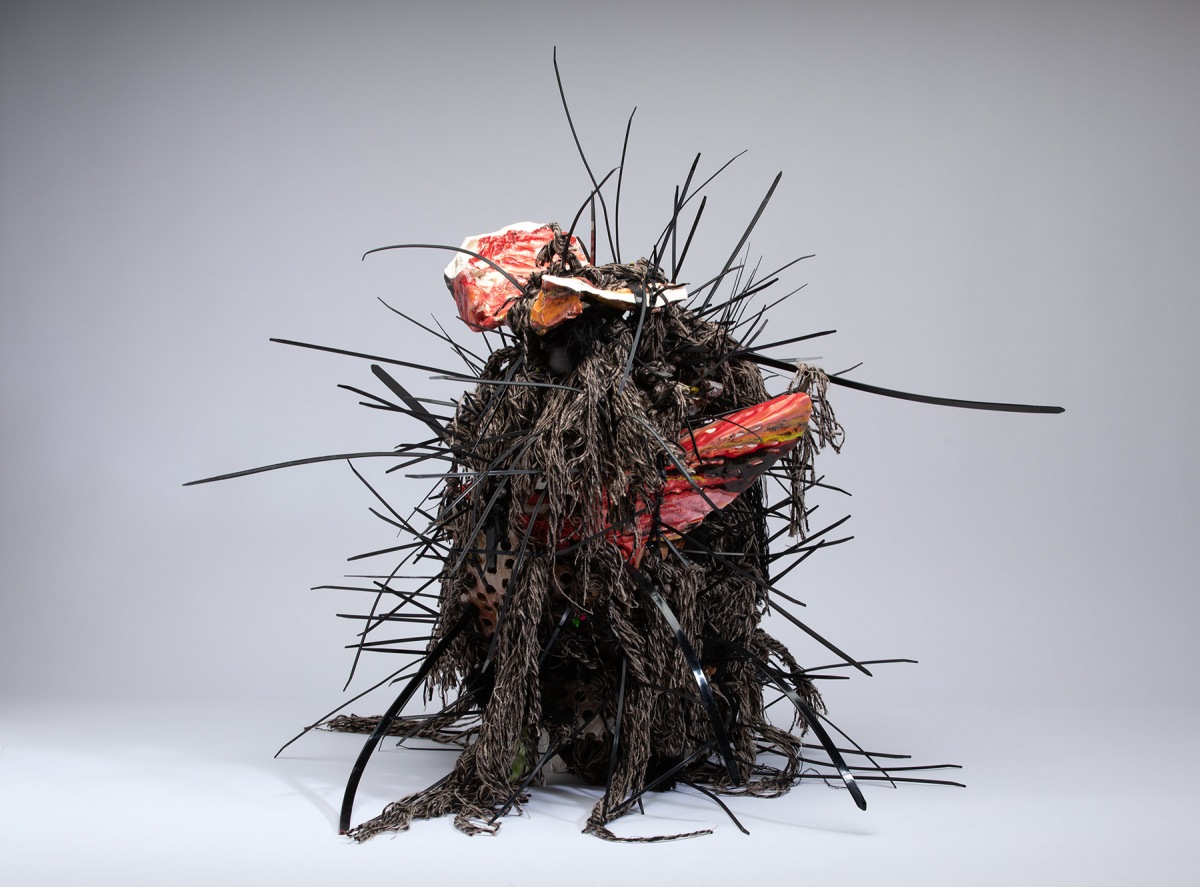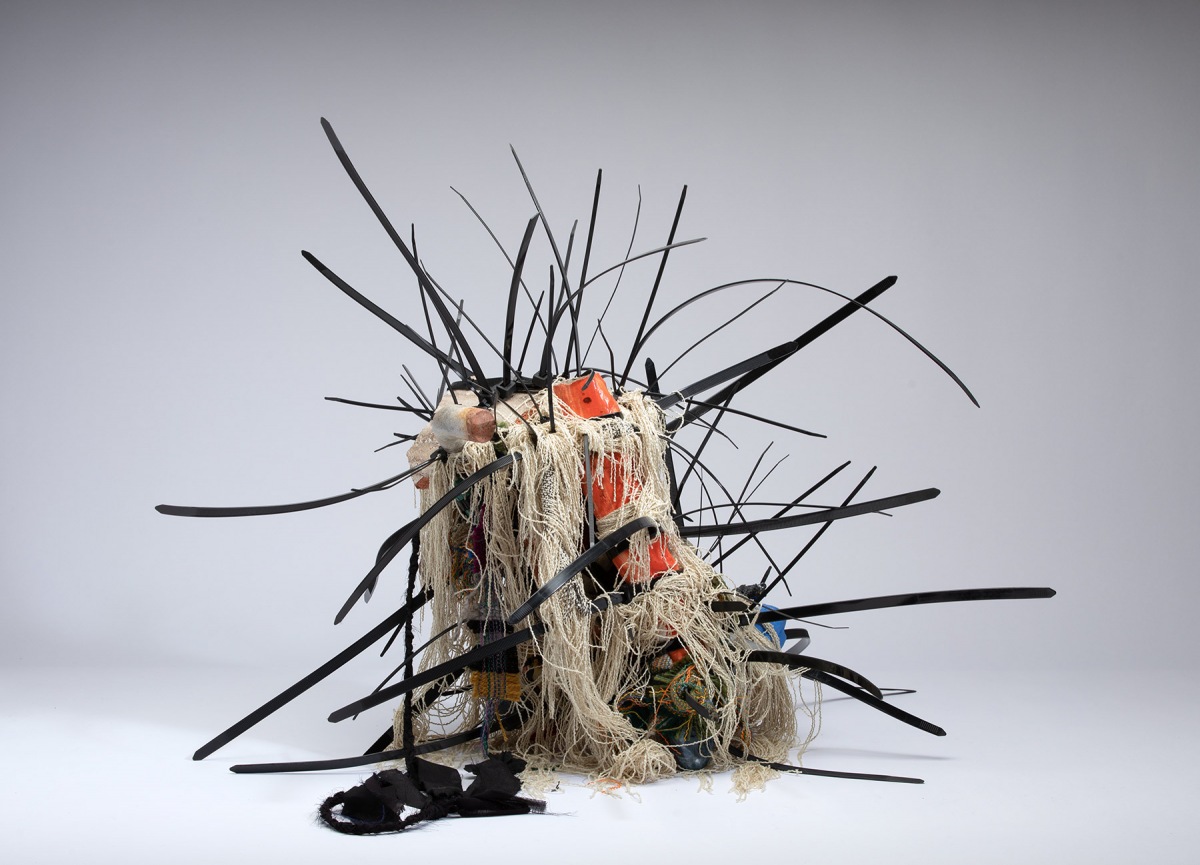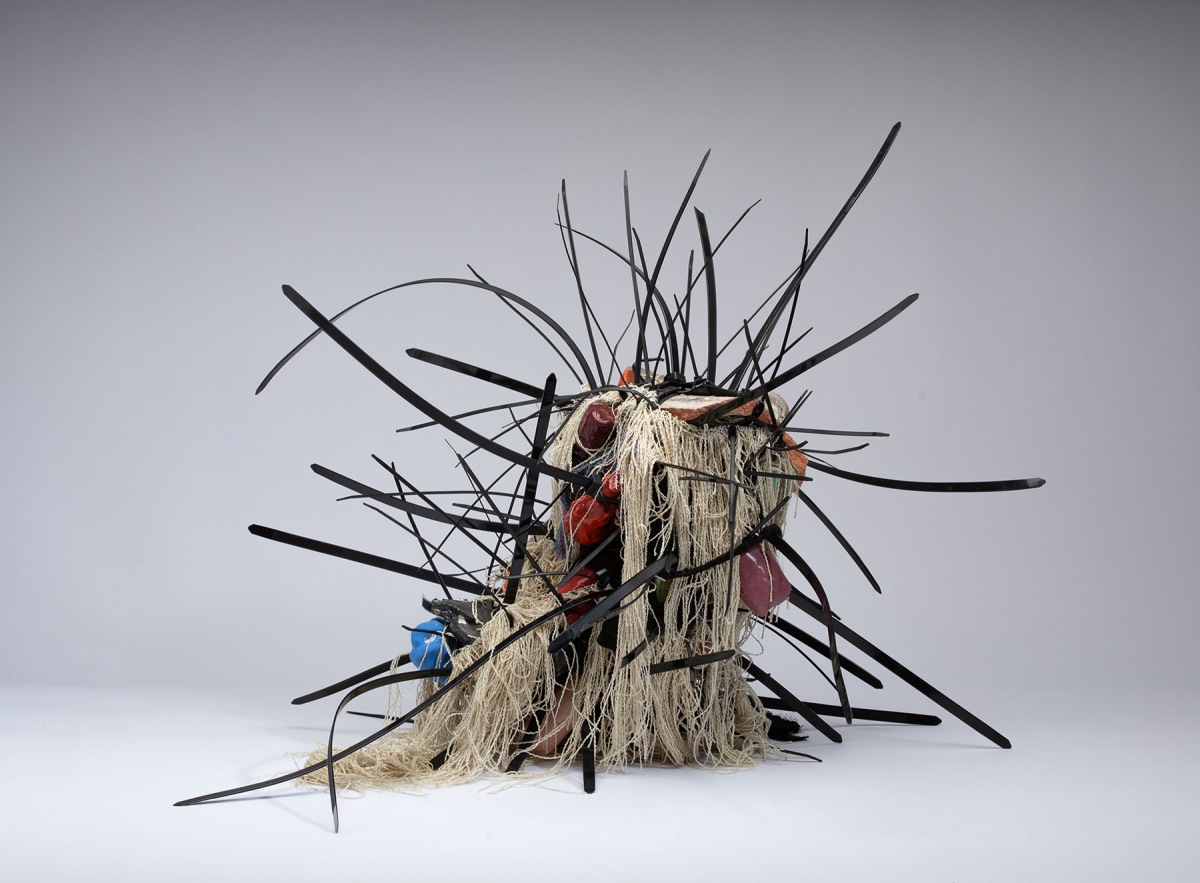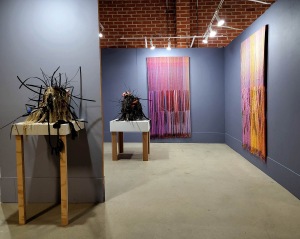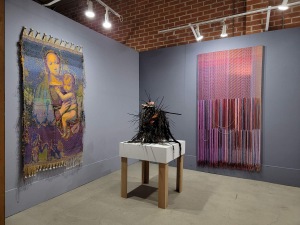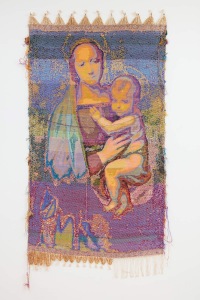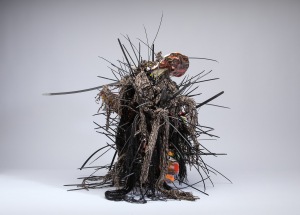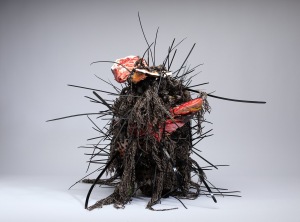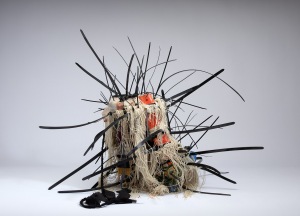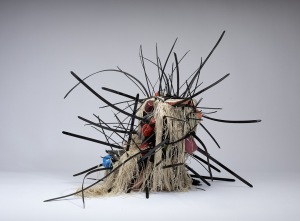Work
Press Release
SPRING BREAK ART SHOW LA
Cloaked In Drag
John Paul Morabito
Ramekon O’Arwisters
PATRICIA SWEETOW GALLERY is thrilled to announce our participation as a Special Project in: SPRING BREAK ART SHOW LA 2023
ARTISTS: JOHN PAUL MORABITO & RAMEKON O’ARWISTERS
LINKS FOR TICKETS BELOW: Wednesday, 15 February – Sunday, 19 February
Press Preview + First Look (Invitation only): Wednesday, February 15th, 12PM – 5PM
Opening Night: Wednesday, February 15th, 5PM – 8PM
Regular Show Days: Thursday, February 16th – Sunday, February 19th, 11AM – 7PM
WHERE:
Skylight Culver City // 5880 Adams Blvd, Culver City, CA

___________________
CLOAKED IN DRAG
In reading Spring/Break’s LA theme, “Naked Lunch,” I imagined the tapestries of John Paul Morabito, a transdisciplinary weaver who engages queerness, ethnicity, and the sacred through the medium of tapestry, along with the fabric/ceramic sculpture of Ramekon O’Arwisters, whose flamboyant works take the viewer on a romp through the couture and drama of drag.
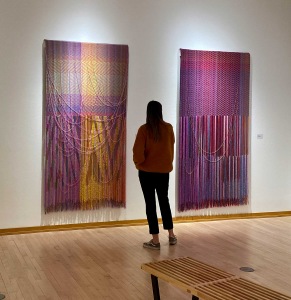
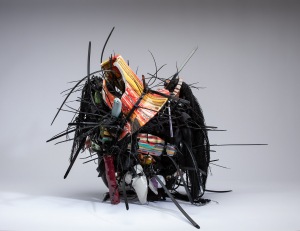
Tapestries were one of the more effective propaganda tools of early church and state. John Paul Morabito’s tapestries enlist this same methodology to contort the tropes of faith, bequeathing Queer assignation to sacred church Renaissance paintings. Morabito grew up in the Catholic Church, a second-generation Italian American who is gay. John Paul employs Goth overtones to deftly reframe the stigmatization and hypocrisy of the Catholic Church toward Queer communities and culture. By changing the intention and material of early devotional paintings, they deliberately stage a Queer melodrama with a subtle but explicit intervention, cloaking the paintings of Madonna and Child in Drag – a Queer allegory turning sacred to Camp.
Spring/Break ’23, includes works from two related series, For Félix (love letter) and Magnificat. The tapestries, approximately 8 feet high by 4 feet wide, celebrate the concept of “Gay Grace”. In one series Magnificat, John Paul remediates Renaissance paintings of the Madonna and Child by reframing them in the flamboyant colors of Drag. The random, accentuated day-glow colors, with the stigmata presentation supporting the gold beaded fringe, enfold the devotional paintings in a queer lens. The second series, For Félix (love letter), is just that, a love letter to Félix González-Torres, who succumbed to AIDS. For Félix is a corollary to the beaded curtains of González-Torres, a powerful metaphoric veil between life and death. González-Torres’ work was a protest against the Catholic Church as the guiding moral orthodoxy instigating hate and violence against anyone marked Queer. Morabito also places focus on the complicity of the Catholic Church, reinterpreting devotion and devotional acts with a blasphemous queer protest. Beading on a needle for González-Torres and for Morabito are analogous to the act of moving beads on the Rosary; instead of repentant prayer their beading is an act of Queer tribute and remembrance.
Drag, in all its bombastic and glittering glory, is a guiding sensibility which I engage as a queer methodology to decadently retrace (and undo) faith, history, and legacy. I employ digital interfaces in concert with improvisational handwork to mutate relics, devotional images, and ritual matter into opulent woven memorials that twist time. Released from the tyranny of the present, my work looks toward a future-past horizon where one can exalt queer grace.
– John Paul Morabito
In tandem with their studio, John Paul Morabito pursues a practice-led scholarship that positions weaving as a critical platform of cultural production. Their writing has been published in Art China, The Textile Reader 2 (China Academy of Art), The Journal of Textile Design Research and Practice, Textile: Cloth and Culture, and Bloomsbury’s forthcoming Encyclopedia of World Textiles. They are the editor of Weaving Beyond the Binary, a special issue of the international peer reviewed journal, Textile: Cloth and Culture.
In 2022 Morabito was appointed Assistant Professor and Head of Textiles at Kent State University. From 2013 to 2022 Morabito was Assistant Professor of Fiber and Material Studies, School of the Art Institute of Chicago, Chicago, IL. They serve as Director-at-Large for the American Tapestry Alliance and Poly-Chair for the Queer and Trans Caucus for Art. Morabito holds a BFA from the Maryland Institute College of Art and an MFA from the School of the Art Institute of Chicago. Their work has been included in numerous museum exhibitions, with upcoming exhibitions including the Art in Embassies Program, Washington, DC; Southeastern Center for Contemporary Art (SECCA), Winston-Salem, NC, The Threads We Follow, curated by Maya Brooks; and PATRICIA SWEETOW GALLERY, Los Angeles, A Chorus of Twisted Threads.
Ramekon O’Arwisters is a Black gay artist, whose abstract sculpture dives into the abyss and the beautiful, with large sharp ceramic shards knotted together with shredded fabric. The sculptures stand as cultural totems, embodying the couture of drag, Black culture, African American quilting and religion. Bitten, a new series of sculpture, takes off and embellishes upon Flowered Thorns, the previous series of sculpture (2021). Flowered Thorns used a biblical reference familiar to everyone, that of Adam and Eve, the symbol of original sin derived from sexual pleasure. O’Arwisters began Flowered Thorns during the COVID-19 pandemic, while racial injustice, climate change and political chicanery were further normalized. The telling of this parable posits that thorns didn’t exist prior to Adam succumbing to an eroticized Eve, the first “dangerous woman.” Thorns became the emblem of sin, sexuality, danger, illegitimacy, queer and more. O’Arwisters now delivers Bitten, a series laced with the implements of threat, black zip ties, along with rope and clamps, placing danger on a new metaphorical plane. As a method of restraint and punishment, the Black Zip Ties enfold the sculpture in an emboldened position of exquisite repose. Aware of the notorious weaponization of zip ties, O’Arwisters instead turns them into implementations of beauty and pleasure, amplifying sexual fantasy and play. Again he adroitly turns prevailing orthodoxies on their ear, with a compelling communion of opposing materials that cohabitate with elegant grace.
Growing up in the Black Church, receiving his M. Div. from Duke University Divinity School, O’Arwisters has a unique lens on both the protection and the failings of religion. His sculpture plays out dramas of gay, secular and devotional life in a glorious and complex manner. His work, like Morabito’s challenges the orthodoxy of belief by dishing up seduction so intense as to singe the viewer.
Ramekon O’Arwisters is the 2021 recipient of the McLaughlin Foundation Award for The Project Space at Headlands Center for the Arts, Artist-in-Residence program. In addition he received a Pollock-Krasner Foundation Grant for 2020/21. Past artist-in-residence programs include the de Young Museum Artist in Residence, the Djerassi Resident Artists Program, Recology San Francisco Artists in Residence Program and the Vermont Studio Center. Grants and Awards include Artadia: The Fund for Art and Dialogue, NY; the San Francisco Foundation; the San Francisco Arts Commission Cultural Equity Initiatives Program; Black Artists Fund, Sacramento; and the Eureka Fellowship awarded by the Fleishhacker Foundation in San Francisco. His work has been featured in Sculpture Magazine, the LA Times, San Francisco Chronicle, 7×7 Magazine, Artnet, and the San Francisco Examiner. Upcoming museum and gallery exhibitions include the San Francisco Museum of Craft and Design, FIGHT AND FLIGHT: CRAFTING A BAY AREA LIFE; American Museum of Ceramic Art (AMOCA), Making in Between: Gender Identities in Clay (MIB:GIC); San Jose Museum of Quilts & Textiles, Queer Threads; Jason Jacques Gallery, New York, NY, Pollen on a West Wind, curated by Tony Marsh and PATRICIA SWEETOW GALLERY, Los Angeles, A Chorus of Twisted Threads.
Born in Kernersville, North Carolina, O’Arwisters earned a M.Div. from Duke University Divinity School in 1986. O’Arwisters is the founder of Crochet Jam, a community arts project infused with folk-art traditions that foster a creative culture in cooperative relationships.
____________________________________
